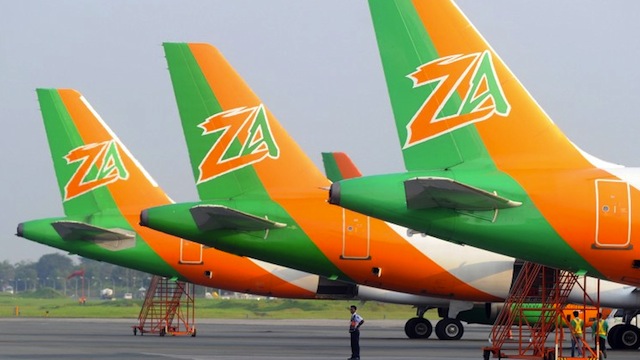SUMMARY
This is AI generated summarization, which may have errors. For context, always refer to the full article.

MANILA, Philippines – Insisting that its 11 aircraft are “safe and airworthy,” low-budget carrier Zest Air decried the suspension order it received from the Civil Aviation Authority of the Philippines (CAAP).
“We are surprised that this was issued without giving us an opportunity to properly respond to [the] issues raised,” Zest Air said in a statement Saturday, August 17. “The management of Zest Air have been in full cooperation with CAAP in ensuring that the maintenance programs and policies of ZestAir are in place. All findings in CAAP’s letter have already been appropriately addressed and we believe that they do not merit suspension and grounding of our operations.”
In a letter Friday, August 16, CAAP informed Zest Air it suspended its Air Operator Certificate. This covers both its local and international flights.
“This agency is alarmed of Zest Air’s series of serious deviations and infractions of the rules and standards prescribed under the Philippine Civil Aviation Regulations (PCAR),” read the letter signed by CAAP deputy general John Andrews. The letter was addressed to juice magnate and Zest Air chairman Alfredo Yao.
Zest Air’s suspension comes amid efforts by regulators to enhance local aviation safety standards.
The Philippines is working to get upgraded by the US Federal Aviation Authority (US FAA) back to Category 1 status. CAAP said this is the next goal following the decision of the European Union to remove the Philippines from its aviation safety blacklist.
On August 2, CAAP placed Zest Air under “heightened” surveillance following a series of flight cancellations brought about by mechanical problems.
Zest Air cancelled 8 flights on August 1, and 9 on August 2 due to “aircraft situation.” In July, the carrier cancelled a total of 33 flights, mostly in Kalibo.
Zest Air has a fleet of 10 Airbus A320s and one A319 flying to 9 domestic and 5 international destinations via the Ninoy Aquino International Airport as well as hubs in Kalibo and Cebu.
Issues addressed
In its statement, Zest Air said it voluntarily stopped operations a few weeks ago precisely to address and rectify safety issues.
“With due respect to CAAP, our reports on how we addressed the incident in Kalibo reflected this and is confirmed by CAAP inspectors that no maintenance procedural lapses were committed and that the aircraft concerned is not subject to any technical problems,” Zest Air said. “The incident in Tagbilaran would have been addressed sooner had we not been required to have the maintenance rectification inspected by CAAP personnel. It is unfortunate that Tagbilaran airport has only one runway and ramp, and this is the reason why the incident snowballed to have affected so many passengers.”
The airline flies to Bacolod, Cagayan de Oro, Cebu, Davao, Iloilo, Kalibo, Puerto Princesa, Tacloban, and Tagbilaran. Its overseas destinations include Shanghai, Jinjiang, Incheon, Kota Kinabalu, and Kuala Lumpur.
CAAP deputy general John Andrews said Zest Air violated, among others, Subsection 9.2.2.2 (a) of PCAR, which states that: “Each operator shall have an accountable manager… who has corporate authority for ensuring that all flight operations and maintenance activities can be financed and carried out to the highest degree of safety standards.”
Zest Air insisted that its “accountable manager is Ambassador Alfredo M. Yao who is the President and Chief Executive Officer of Zest Air.”
The other violations that CAAP said the carrier committed were:
- Failure to check aircraft bags, flight manifest, weather, etc.
- Failure to present an airman license during ramp inspection
- Series of occurrences like fuel overflow that affected several flight operations
- Refueling with passengers on board
- Excessive flight duty time of pilots
The violations were committed within the period January 2012 to August 2013. – Rappler.com
Add a comment
How does this make you feel?
There are no comments yet. Add your comment to start the conversation.